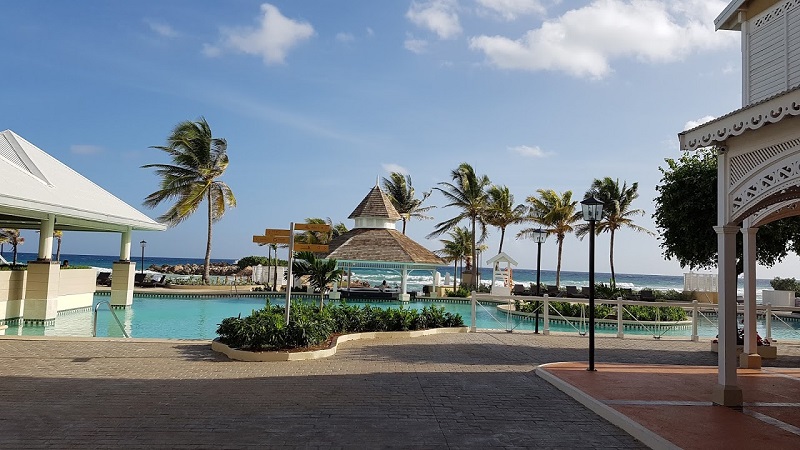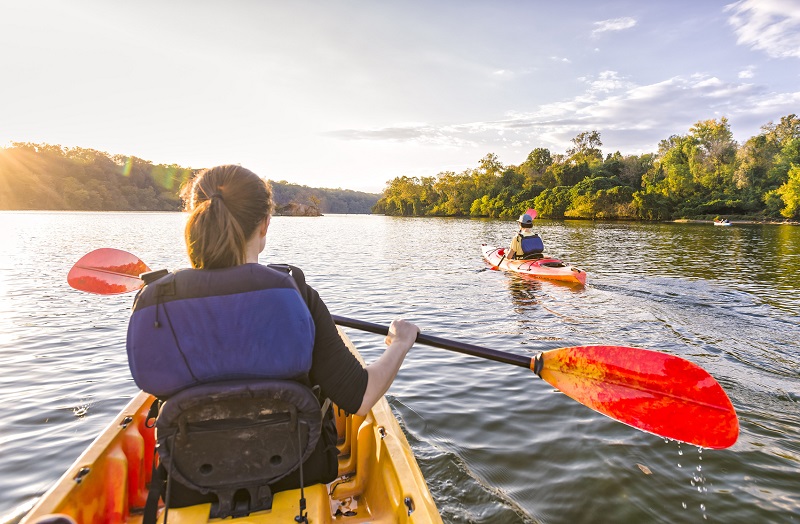
There’s a lot of wonky weather these days. Environment Canada has posted heat warnings in southeastern Alberta, Saskatchewan and Nova Scotia, following similar warnings in Quebec and Ontario. Europe, the U.S. and the Arctic saw recent record-breaking heat, and July 2019 went down as Earth’s hottest month on record.
How Can People Prepare for Travelling in Extreme Heat?
Check the weather forecast, which can give you a sense of what to expect at your destination, and help you plan. Pack appropriately, for example, by bringing along lighter cotton clothing. Consider bringing reusable water bottles that you can fill at the airport or the hotel, so you and your family are always hydrated. “When you’re dealing with extreme temperatures, water intake is incredibly important,” says Areni Kelleppan, acting executive director of Green Calgary, a registered charity dedicated to providing solutions to help people live a greener life.
Tips for Keeping Your Cool in a Heatwave!
- Visit public locations that have air conditioning; museums, libraries, science centres.
- If you have air conditioning in your hotel room, don’t crank it to the coldest temperature, Kelleppan recommends. You don’t want to be freezing indoors and piling on sweaters – keep the temperature comfortable. Another reason to keep the A/C to a reasonable temperature? Air conditioning consumes a great deal of energy, and there are other good alternatives to keeping cool. For example, “if you can, open windows and use cross breezes to cool you rather than air conditioning,” Kelleppan says.
- Use fans instead of air conditioning. “A fan blowing on you during the night is very soothing,” says Dr Joe Vipond, an emergency physician and clinical assistant professor in the University of Calgary’s Cumming School of Medicine. He also suggests closing the blinds during the day to keep direct sunlight out, and if you can, opening a window at night to cool off.
- Before bed, Vipond suggests taking a cold shower – it will cool you right down and allow you to get a comfortable night’s sleep.

Seek out bodies of water like pools, beaches or lakes to keep your body cool when the temperature gets hot
- Hit the beach! Heading to a swimming pool, lake or ocean to cool off is a pleasant option
- But don’t forget the sunscreen!
- Think like people who live in hot places; wear light cloured clothing, and consider relaxing with a siesta in the hottest part of the day. If it’s going to be really hot out, plan to do more of your sightseeing in the early morning and the evening. “As a result, you may get to see all kinds of more interesting things that are off the beaten path,” Kelleppan says. If you are exerting yourself physically, for example, if you’re going cycling, consider the time of day that you head out. “Try to avoid the hottest part of the day.”
- Cover Your Head: Pack a sun hat and an umbrella which is surprisingly effective at helping one stay cool on a hot day.
- Drink lots of water! Staying hydrated is very important, states Health Canada, which recommends drinking plenty of cool liquids, particularly water. If drinking plain water doesn’t appeal, add slices of lemon, lime, orange or cucumber for more flavour. Health Canada also suggests including plenty of fruits and vegetables, which contain lots of water, in your meals.
Around the world, heatwaves and extreme heat are becoming more common. According to Sceptical Science, a non-profit science education organisation that explains peer-reviewed science on global warming, global warming is increasing the frequency, duration and intensity of heatwaves. “Extreme heatwaves will become the norm across most of the world by the late 21st century,” Sceptical Science states. “However, if we take major steps to reduce human greenhouse gas emissions, the number of extreme heatwaves will stabilise after 2040.”
Dr Vipond, who also volunteers with the Canadian Association of Physicians for the Environment and the Calgary Climate Hub, says that concerned travellers can reduce their environmental footprint by considering their transportation choices. Flying is the most carbon-intensive way to travel, while high-speed trains are an excellent choice in terms of lower carbon emissions.

.
Taking a lower carbon holiday is also an excellent way to help the environment. This summer, Vipond and his family are going on a five-day backpacking trip and five-day kayaking trip. “Aside from what it took to produce our food, we’ll be using no energy during those days,” he says.



